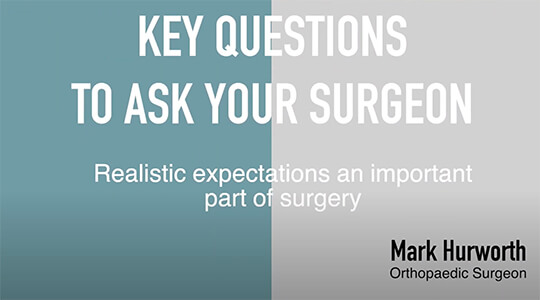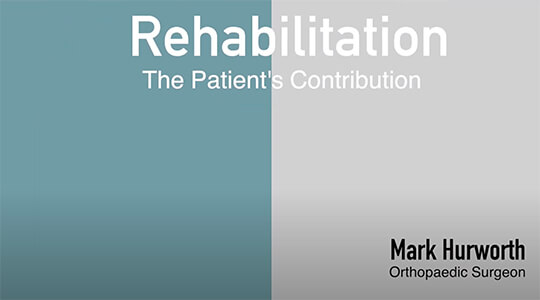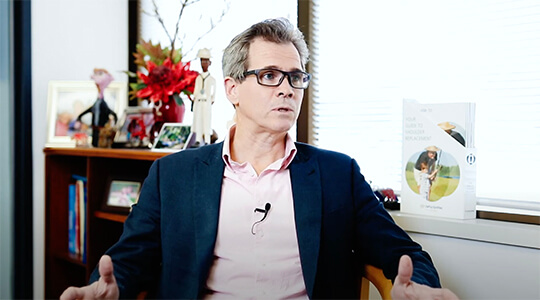Avoid orthopaedic surgery
Should I consider avoiding surgery? If so, how and in what circumstances?
Orthopaedic surgery differs from some other areas of surgery, as having a problem does not necessarily mean that it always needs to be fixed, can be fixed, or is worth fixing. In some conditions, appropriate treatment without surgery is superior or equivalent to surgery. Below, we will go over some of the nuances of how to make decisions in this complex area.

My orthopaedic practice in a nutshell
Best options to avoid orthopaedic surgery
If I can, should I avoid surgery?
It is worth remembering that if you see a surgeon you will often be offered surgery (that’s what we do), so it is worth thinking carefully about how you can avoid surgery before you commit to an operation.
My experience as an orthopaedic surgeon is that sometimes the patients who have done the most in a sensible way to avoid surgery, get the best outcomes with surgery as well. This is because patient agency ie your motivation, effort and compliance make a significant difference – both for better and worse – in orthopaedic surgery. This is important in the ageing body, as we know that a lot of problems occur with age are predictable, and can be managed without surgery.
For instance, as we age we lose muscle in a predictable fashion, but we also know that you can rebuild muscle if you work at it – even in your 90’s.
If you are looking to avoid surgery, you need to come to a clear diagnosis, understand the problem, and weigh up the risks of surgery, the chances of success, and clearly define what success would look like and how long it would take to achieve, together with the chance of it all happening again. It’s important to be on the same page as your surgeon when you talk about these questions:
- Do I really need this treatment?
- What are the risks?
- Are there simpler, safer options?
- What happens if I don’t do anything?
- What are the costs? (financial, emotional and time.)
Typically, an atraumatic onset to symptoms ie. symptoms that come on without trauma or a clear precipitant, would be more likely to result in initial non-surgical management.

Mr Mark Hurworth, Perth orthopaedic surgeon
“Here in our practice in Perth, we run innovative research in the area of patient agency – optimizing the part you play in surgery avoidance, surgical preparation and recovery outcomes. I believe this is an important and under-researched area.”
To add a bit of perspective to the above: in many other surgery types, the response to surgical intervention is quite predictable as there are limited variables: I would call them ‘blocked pipe’ surgeries. If your symptoms are related to a blocked pipe ie bowel, vessel, ureter etc, the surgeon unblocks or replaces the pipe and you get better. Symptoms and recovery typically follow a relatively predictable or linear pattern.
Orthopaedic surgery is different in a few ways:
- Symptoms often follow a non-linear pattern as there are frequently multiple variables: a patient can make choices to manage their condition, and if they make the correct choices that will sometimes mean avoiding surgery. We move our limbs when we choose to, and that means we are in charge (to some extent). If you stop moving to avoid pain, your body responds in two ways
- Joint stiffness
- Muscle wasting
- Both the above can quickly make a bad situation worse. “Pain avoidance” behaviour is not the best solution – rather think building up resilience.
- There is another limb to help, and there are often other muscles to help. Just because something is broken doesn’t mean it always needs to be fixed, can be fixed, or won’t break again even if it is fixed.
Is there too much surgery?
There is growing concern in some quarters that there is too much surgery, or perhaps a tendency to over-operate in the Western context. A few points in this regard follow below:
- Clearly, some operations are more effective than others. For instance, some commonly performed spinal operations lack evidence of benefit compared to non-surgical treatment.
- In a market where there are a lot of surgeons, it is inescapable to some extent that there will be a lot of surgery
- People can have unrealistic expectations about the relative contribution that surgery makes in the area of orthopaedics, and likewise can underestimate the importance of their own contribution/agency.
- It is important to get real answers to questions like: what are the chances of benefiting from this operation, and realise that there may be a larger grey zone of “partial improvement” than one would hope for in some surgeries in particular.
- Always bear in mind that surgery – at its foundation – is invasive and therefore involves risk. A good surgeon’s job is to minimise the risks of a poor outcome and maximise the risk of a good outcome for you.

Mr Mark Hurworth, Perth orthopaedic surgeon
Most sensible patients (and surgeons) want to know the answer to what I call “the three big questions”
- Have I exhausted everything in my power to avoid surgery?
- Have I prepared adequately for surgery?
- Am I hitting my targets after surgery?
An important element when we discuss choices related to having surgery or not will be about your quality of life. We want to take the whole picture into account. For example, if you are elderly, and acting as a carer for an elderly wife or husband, maintaining your independence really matters. We will talk about the best way to regain and maintain your independence, for as long as possible.
Clear diagnosis before orthopaedic surgery
Can it wait?
I see patients regularly, for instance with knee arthritis, where we discussed knee replacement years ago, they decided to try to manage their symptoms, and then they come and see me five years later to have the discussion again. It’s not about your X-rays, it’s about taking the time to look at the whole picture.
So if a surgeon has told you that you need surgery, make sure that there has been a clear and in-depth diagnosis and discussion of other options before you choose to have surgery.
Some diagnoses – for example, meniscal tearing in a young knee – are obvious and it is relatively predictable that you will need surgery. Other conditions are more complex and often in those cases, the choice to have surgery is nuanced. It is essential to ask questions such as:
- What happens if I do nothing?
- Are there simpler, safer alternatives?
As your surgeon, I will be transparent about this and we will have an open conversation. In some cases, the best approach is to only have surgery after you have exhausted other options. A good GP and a good surgeon will always be able to differentiate.
Story continues below video gallery
Videos
Second opinion orthopaedic surgery
The importance of a second opinion
Especially when you are in doubt, you may want to consider getting a second opinion before you agree to undergo surgery.
If you feel that you are being rushed into making a quick decision, then it may be a bad idea. I recommend reading ‘5 Questions To Ask Your Surgeon’ on the Choosing Wisely website before you come to see me.

Best alternatives for orthopaedic surgery
But I am in pain. What alternatives are there?
What other options do you have besides surgery? The first step is always to make sure that you understand the diagnosis in your own head. A common problem that we see as advanced imaging become more available is that scans will almost always show some type of pathology or “abnormality”. Often you will see a daunting long list of “Conclusions” at the end of the scan report, listing various pathologies. However, often these pathologies may not be responsible for your symptoms, hence the importance of an experienced GP/surgeon.
Remember, surgery is by nature invasive, involves risk and can sometimes make your condition worse – don’t be rushed into making decisions.
Things that have shown to work with clear evidence are:
- Exercise: Yes, you can exercise with worn-out joints, you just need to find out how. Exercise has all the benefits of medications without the side effects, and should be tried first.
- Changing your activities: In medical terms, we call it “activity modification”, meaning staying away from activities that worsen the condition. Squatting with a meniscal tear or torsional activities with an ACL injury are typical examples, and often particular activities can spur on particular symptoms.
- Weight loss: This generally applies to lower limb problems and is disproportionate ie 20% weight loss equates generally to 50% symptom reduction. But always remember that weight loss is pointless without exercise – you want to lose bad weight (fat) and gain good weight (muscle).
- Anti-inflammatories: There are different types and it is best to speak to your GP about managing your condition with what are commonly called NSAIDs, but if you have inflammation then it’s generally sensible to try anti-inflammatories first.
- Analgesics: Simple painkillers can be part of a first-line treatment as long as you choose safe and non-addictive options. Do not let someone put you on an opiate medication (medically prescribed opiates are the fastest growing area of addictions) without a clear plan to come off them.
- Injections: Cortisone can be effective especially in cases of swelling and inflammation.
Once you are happy that you have exhausted the nonoperative management of your condition, surgery may be the best option.
avoid orthopaedic surgery
So when is it not ok to avoid surgery?
If you have had an injury or a clear incident that has led to function loss or pain for example, then we tend to be more aggressive with:
- Quickly coming to a clear diagnosis with the assistance of imaging, such as an MRI
- Offering surgery early if appropriate, so that surgical recovery time can be absorbed into overall recovery time.
If or when surgery is needed then the focus shifts to two questions:
- How best to prepare?
- How best to recover?
I talk about a ‘double rehabilitation’ problem if surgery in urgent cases is postponed. After an injury such as ACL rupture you may get partially better, then re-injure yourself again because of the residual instability of the original injury, and end up having surgery and going into a second rehabilitation from a worse starting point (as you were never able to rehabilitate properly after the original injury because of ongoing symptoms). Having the surgery earlier means that there is only one rehabilitation. Hence the importance, after a clear injury, of getting an early clear diagnosis.


